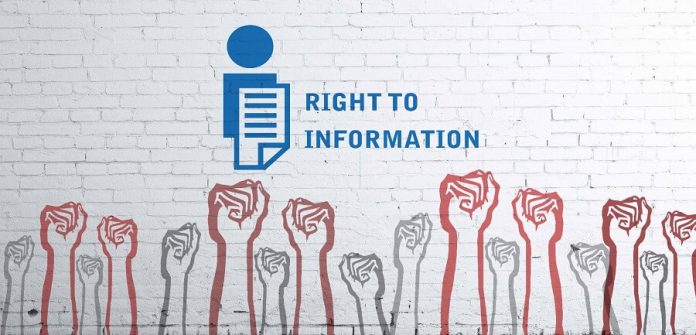This article has been written by Oishika Banerji of Amity Law School, Kolkata. This article provides a case analysis of Central Board of Direct Taxes v. Satya Narain Shukla (2018).
This article has been published by Sneha Mahawar.
Table of Contents
Introduction
The present case of Central Board of Direct Taxes v. Satya Narain Shukla (W.P.(C) 5547/2017 & CM No. 23333/2017) that appeared before Hon’ble Mr. Justice Vibhu Bakhru of the Delhi High Court was concerning an issue around the Election Commission’s verification of affidavits made by Members of Parliament (MPs) and Members of the Legislative Assembly (MLAs) revealing their assets. The respondent had provided a list of MPs and MLAs whose assets had reportedly risen by more than fivefold since the last election (that is, during the term of their office as elected representatives after the previous election). While the First Appellate Authority rejected the request for furnishing the responses received from the Directorate General of Income Tax (Investigation) (DGs), the respondent preferred a second appeal before the Central Information Commission (CIC), which was allowed. The Central Public Information Officer (CPIO) was directed to supply the information sought by the respondent. The case appeared before the Delhi High Court with two prime issues concerning the Right to Information Act, 2005. This article provides a case analysis of the case stated above.
Facts of the case
The respondent filed an application under the Right to Information Act, 2005 (RTI Act, 2005) on November 16, 2015, requesting the following information:
- Photocopies of letters F. No. 282/4/2012-IT(Inv) dated 1.10.2013 and No. 282/04/2012-IT(Inv. V)/140 dated 9.7.2015.
- Photocopies of the DGs’ answers to Shri Rajat Mittal, Under Secretary (Inv. V) Central Board of Direct Taxes (CBDT), letter No. 282/4/012-IV (Inv. V)/192 dated 11.08.2015.
In a letter dated December 28, 2015, the CBDT’s Central Public Information Officer (CPIO) responded to the petitioner’s application. He did not supply the photocopies of the letters that were requested at point no. 1, but he did offer a brief summary of the substance of those letters. In regards to the information requested at point no. 2, the CPIO answered that since the case was under investigation, information could not be released at that time under the terms of Section 8(h) of the RTI Act, 2005 which related to the information that might obstruct the process of investigation, arrest, or prosecution of criminals.
The respondent, who was dissatisfied with the CPIO’s response, filed an appeal with the First Appellate Authority (FAA) under Section 19(1) of the aforementioned Act. The appeal was settled by an order dated February 11, 2016, in which the FAA ordered the CPIO to submit photocopies of the relevant letters as sought by the respondent in point no. 1 of his application. The FAA maintained the CPIO’s determination that the stated information was excluded under the provisions of Section 8(1)(h) of the Act and hence could not be supplied at that time in response to the respondent’s request for replies received from the DGs to the letter dated 11.08.2015.
The respondent filed a second appeal with the CIC after being dissatisfied with the FAA’s decision to deny the request for the replies obtained from the DGs. The challenged judgment upheld the appeal, and the CPIO was ordered to provide the respondent with the requested information. In the present matter, the petitioner (CBDT) challenged the Central Information Commission’s (CIC) ruling dated 29.05.2017 in a second appeal filed by the respondent under Section 19(3) of the Right to Information Act, 2005 before the Delhi High Court.
Issues
- Whether there was an investigation being conducted by the Directorate General of Income Tax (Investigation) which exempted the information sought, from disclosure by virtue of Section 8(1)(h) of the Right to Information Act, 2005?
- Whether the information sought by the respondent is excluded from the purview of the Right to Information Act, 2005?
Contentions of the parties
The arguments presented before the Delhi High Court by both the parties to the case have been discussed hereunder.
Submissions by the petitioner
The petitioners argued that the affidavits of MPs and MLAs stating their assets are sent to the CBDT for verification by the Election Commission of India. The CBDT thereafter forwards these affidavits to the Directorate General of Income Tax (Investigation) for verification, and the Directorate General of Income Tax (Investigation) shares the results immediately with the Election Commission of India. CBDT’s learned counsel had contended before the Delhi High Court that the agency could not be compelled to provide photocopies of responses received from the DGs because of the following two reasons:
- The information sought is exempt from disclosure under Section 8(1)(h) of the Right to Information Act, 2005, and
- Any information from the Directorate General of Income Tax (Investigation) is exempt from the Act’s purview under Section 24(1).
Submissions by the respondent
- The respondent argued that the verification exercise conducted by the Directorate General of Income Tax (Investigation) is merely suggestive in nature and that any further action sought under the Income Tax Act, 1961 must be accompanied by an assessment order issued by the assessing officers. The candidates’ verification affidavits are not the same as an investigation as defined in Section 8(1)(h) of the Right to Information Act, 2005. The investigative method described in Section 8(1)(h) of the 2005 Act is similar to that of a probe or inquiry. Verification from records clearly does not qualify as an ‘investigation.’
- The respondent further argued that because the material he wanted was connected to charges of corruption, it fell under the exemption to Section 24(1) of the 2005 Act’s exclusionary clause.
Judgment
A judgment of a case is made up of ratio decidendi and obiter dicta. The judgment in the present case has both of these ingredients with an interesting note. The same has been discussed below.
Ratio decidendi
According to a straightforward interpretation of Section 24(1) of the Right to Information Act, 2005, the Act’s requirements would not apply to the Intelligence and Security Organizations listed in the Second Schedule. Furthermore, any information obtained from such organizations is subject to Section 24(1) of the Act’s exclusionary clause. The Directorate General of Income Tax (Investigation) is one of the offices and public bodies included in the Second Schedule, but the CBDT is not one of them. As a result, any information obtained by a Public Authority from the Directorate General of Income Tax (Investigation) would be subject to the exclusionary provisions of Section 24(1) of the aforementioned Act.
Obiter dicta
The claim that the term “process of investigation“ in Section 8(1)(h) of the 2005 Act includes assessment proceedings that result in an assessment order, is clearly unfounded in the present case. The assessment proceedings are only concerned with the examination of income tax returns and the determination of an assessee’s tax liability. Clearly, such actions do not have the appearance of an inquiry.
Observations of the court
The observations made by the Delhi High Court in light of the present case of Central Board of Direct Taxes v. Satya Narain Shukla (2018) have been provided hereunder:
- The Court stated that there was no evidence in this present matter that any inquiry was underway that would be hampered by the publication of the information requested by the respondent under Section 8(1)(h) of the Right to Information Act, 2005.
- The Court had further observed that the respondent was correct that any material relating to accusations of corruption and human rights breaches, falls under the exception to Section 24(1) of the Right to Information Act, 2005, because of the first proviso of the section. In other words, regardless of whether such information comes from one of the organizations listed in the Act’s Second Schedule, it was not exempted from the Act’s reach.
However, it is impossible to believe that the information requested by the respondent is related to charges of corruption in this case because no such claims have been made at any point. The respondent had simply said that some MLAs and MPs’ net worth had grown fivefold, and the respondent had requested verification of the same in order to promote transparency. The respondent made no particular or broad claims of corruption. As a result, even though the information sought by the respondent comes from the organization listed in the Second Schedule, it is impossible to agree that it is within the scope of the Act.
- The Delhi High Court had viewed that in light of the present case, CIC’s decision could not be upheld and was, as a result, overturned. It is noted, however, that if any citizen makes a corruption claim, the material requested by the respondent would not be excluded from the Act’s scope. The petition as well as the current application have been dismissed. The Court observed that the parties are responsible for their own expenses in the present case.
Analysis
Sections 8(1)(h) and 24(1) of the Right to Information Act, 2005 are the two provisions that the Delhi High Court took into consideration while deciding the present case. While Section 8 talks about exemption from disclosure of information, Clause (1), sub-clause (h) lays down one of the grounds for exemption of disclosing information that includes “information which would impede the process of investigation or apprehension or prosecution of offenders”. Put simply, only such information that might obstruct the investigation process and obstruct the apprehension or prosecution of criminals, is exempted from disclosure by virtue of Section 8(1)(h) of the Act.
Even if it is assumed that the Directorate General of Income Tax (Investigation) is conducting an investigation, this is not a basis for information denial. Only information that obstructs the investigating process can be refused. As a result, the CPIO would need to advise the CIC that:
- The inquiry was done or planned; and
- The information requested would obstruct the investigative process.
These prerequisites are clearly not satisfied in the current situation. First and foremost, there is no indication that such inquiry is underway and second, there is no evidence that provision of the information sought will obstruct any such investigation. Therefore, the argument of the petitioner in the present case was rejected by the Delhi High Court.
Another issue that the Court had taken into consideration was whether the information sought for by the respondent is excluded from the purview of the Right to Information Act, 2005 or not. While addressing the same, the Court interpreted Section 24 (1) of the 2005 Act which provides a list of organizations where the Act does not apply. The Directorate General of Income Tax (Investigation) is one of the offices and public bodies included in the Second Schedule, but the CBDT is not one of them. As a result, any information obtained by a Public Authority from the Directorate General of Income Tax (Investigation) would be subject to the exclusionary provisions of Section 24(1) of the Act. Clearly, the respondent is looking for information from the Directorate General of Income Tax (Investigations). As a result, CBDT would be justified in refusing the respondent such information.
Conclusion
The Right to Information Act, 2005 empowers Indian residents to request any publicly available information from a government agency, making the government and its employees more accountable and responsible. The present case of Central Board of Direct Taxes v. Satya Narain Shukla (2018) helps one understand the rights and the limitations that are vested on them with respect to this statute.
References
- https://vlex.in/vid/central-board-of-direct-703448993
- https://indiankanoon.org/doc/198320579/
- https://www.lawyerservices.in/Central-Board-of-Direct-Taxes-Versus-Satya-Narain-Shukla-2018-02-19
Students of Lawsikho courses regularly produce writing assignments and work on practical exercises as a part of their coursework and develop themselves in real-life practical skills.
LawSikho has created a telegram group for exchanging legal knowledge, referrals, and various opportunities. You can click on this link and join:
Follow us on Instagram and subscribe to our YouTube channel for more amazing legal content.
 Serato DJ Crack 2025Serato DJ PRO Crack
Serato DJ Crack 2025Serato DJ PRO Crack











 Allow notifications
Allow notifications


